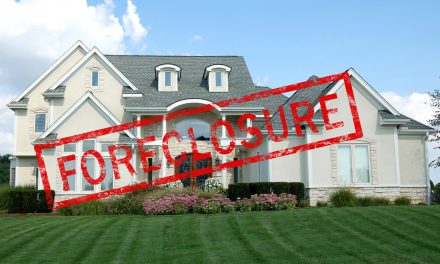For a total list of all the real-estate laws digested by first tuesday for the 2008 legislative session, click here.
Reported by Bradley Markano:
DRE may prohibit licensees from licensing and financial activities for 36 months.
Business and Professions Code §10087
Added by SB 1737
Effective: January 1, 2009
The Department of Real Estate (DRE) may suspend or bar a real estate licensee from participating in any of the business activities of a real estate salesperson or broker, as well as the real estate-related business activities of a finance lender, residential mortgage lender, bank, credit union, or title company, for up to 36 months if:
- the DRE first issues a notice of intention to issue an order and gives the notified licensee the opportunity for a hearing;
- the licensee has been involved in a crime or been held liable in a civil action related to the practice of real estate; and
- the licensee has knowingly violated a DRE regulation; or
- the licensee has unknowingly violated a DRE regulation, causing material damage.
Within 15 days of the Commissioner’s notice of intention to issue an order, the licensee may request a hearing. If he does not do so, and no hearing is ordered by the Commissioner, the licensee’s right to a hearing will be waived.
Upon receipt of a notice of intention to issue an order pursuant to this section, the licensee is immediately prohibited from participating in any of the business activities of a real estate salesperson or broker, as well as the real estate-related business of a finance lender, residential mortgage lender, bank, credit union, or title company activities.
Licensees giving inaccurate opinions of value on a short sale subject to suspension/revocation of license
Business and Professions Code §10176
Amended by SB 1737
Effective: January 1, 2009
A real estate license may be suspended or revoked for giving inaccurate opinions of residential real estate values in connection with a short sale in order to:
- manipulate lenders to reject a proposed debt forgiveness sale; or
- gain a financial or business advantage that directly results from the inaccurate opinion.
Brokers in sales transactions who arrange financing for the sale must disclose dual role
Business and Professions Code §10177.6
Added by SB 1737
Effective: January 1, 2009
Any real estate broker negotiating a sale or lease transaction who also arranges financing for that transaction must make a written disclosure of his multiple roles to all parties involved in the sale, lease, or other related loan transaction, within 24 hours of undertaking the dual roles. [See first tuesday Forms 527 and 119]
California income tax exclusions for lender discount on a short sale
Revenue and Taxation Code § 17144.5
Added by SB 1055
Effective: September 25, 2008
Homeowners selling their principal residence in California on short sales in which the lender takes a discount with a short payoff are entitled to exclude the amount of the discount, or discharge-of-indebtedness income, from gross income on their state income tax returns. The maximum amount of the discount exclusion is $250,000 ($125,000 for married individuals filing separately) and applies only to discounts on the first $800,000 ($400,000 for married individuals filing separately) of all purchase-assist loans.
Auditor must notify taxpayer of eligibility for refund after lowering assessment
Revenue and Taxation Code §4836
Amended by AB 2411
Effective: January 1, 2009
If an audit of property tax records leads the county auditor to correct any errors in an assessment of property value, reducing the amount of a property tax assessment and resulting in a refund, the auditor is required to either process the refund or give written notification of the requirements for obtaining the refund to the eligible individual. This notice must state that the individual has 60 days to claim the refund after the notice is issued.
Qualifications for a tax claim refund application order
Revenue and Taxation Code §5097
Amended by AB 2411
Effective: January 1, 2009
Refund claims may be made if an application for reduction or equalization of an assessment has been filed, but does not state that it is intended to be a claim for a refund. In this case, the claim must be either:
- filed within one year after the first of either of the following events:
- the county assessment appeals board accepts or rejects the application for reduction or equalization, and mails a written notice of its decision which does not advise the applicant to file a claim for refund; or
- two years have passed from the filing of the application, and the county assessment appeals board has not made a final decision to accept or reject the application.
OR
- filed within six months after the county assessment appeals board accepts or rejects the application for reduction or equalization of an assessment and mails a written notice of its determination to the applicant advising him to file a claim for a refund within six months of the date of the county assessment appeals board’s final determination.
HOA may request a copy of trustee’s deed on lender foreclosure of a unit
Calif. Civil Code § 2924b
Amended by SB 1511
Effective: September 27, 2008
A homeowners’ association (HOA) may now record with the county recorder a request for a copy of the trustee’s deed issued on a trustee’s foreclosure sale of units to be sent to the HOA. The request must include:
- a legal description of the property or the assessor’s parcel number;
- the name and the address of the HOA; and
- a statement that it is an HOA.
To be effective, the request must be recorded prior to the recording of a notice of default on the described unit.
The trustee subject to the request is to mail the trustee’s deed to the HOA within 15 business days after recording. Failure to comply with the HOA’s request for the trustee’s deed will not affect title to the property.













